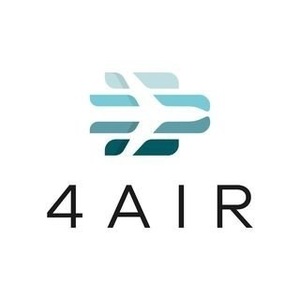4AIR launches Assure SAF Registry to track, validate SAF

May 23, 2023
BY 4AIR
4AIR, which helps companies offset their emissions, use sustainable aviation fuel (SAF), and drive technological change, on May 22 announced the launch of Assure SAF Registry, a blockchain-based web registry designed to document, trace and account for the sustainability attributes of sustainable aviation fuel (SAF).
The Assure SAF Registry provides complete transparency about the type of SAF purchased, the feedstock used, the blend of the fuel, and any sustainability certifications earned or regulatory programs for which the fuel may be eligible. The registry is designed for both physical and book and claim supply chains of SAF and will simplify inventory accounting and prevent double-counting of benefits. All while protecting suppliers’ commercially sensitive and confidential data. By uniquely addressing a SAF tracking need for fuel suppliers, FBOs, airlines, and operators, within the physical supply chain, the registry can unlock the opportunity for a robust book and claim tracking system as well.
“Most SAF today comes from one to two different feedstocks with a narrow range of blends. As SAF expands to new feedstocks and higher blends, transparency about the fuel and where it came from will be critical in efforts to scale its use across the industry, including both business and commercial aviation,” said Kennedy Ricci, president of 4AIR. “Assure SAF Registry will provide a key piece of infrastructure for the transparent scale-up of SAF in aviation, providing transparency to emission claims around SAF while maximizing the value for the operator.”
Advertisement
Advertisement
Leveraging the expertise gained through the documentation of 5.8 million gallons of SAF over the last 2 years, 4AIR created a registry that addresses the most challenging pain points found when tracing the usage of SAF. Usually, SAF is co-mingled in airport pipelines or fuel farms under mass balance or book and claim chains of custody, making it laborious to document, particularly when trying to retain information for regulatory claims from the use of the fuel.
The Assure SAF Registry serializes each unit of fuel and is linked to a specific owner and batch of SAF. This ensures that only one owner can ever claim a specific quantity of fuel and that sustainability characteristics are consistently and accurately communicated through various owners, providing confidence in the ownership and emissions accounting up and down the SAF supply chain.
Advertisement
Advertisement
Pilot programs will help the platform to automate integrations with supplier systems, eliminating the need for much of the manual reporting and accounting. In addition, a pilot program with the Roundtable on Sustainable Biomaterials (RSB) will seek recognition within the RSB Book & Claim System and work towards ecosystem harmonization and a credible claim for customers.
Related Stories
The U.S. Department of Energy’s Office of Energy Efficiency and Renewable Energy is soliciting public comments on a preliminary plan for determining provisional emissions rates (PER) for the purposes of the 45Z clean fuel production credit.
On July 17, Iowa’s cost-share Renewable Fuels Infrastructure Program awarded $1.12 million in grants for 20 applicants to add B11 and 4 applicants to add E15 to retail sites. This was the first meeting following the start of RFIP’s fiscal year.
Par Pacific Holdings Inc., Mitsubishi Corp. and ENEOS Corp. on July 21 announced the signing of definitive agreements to establish Hawaii Renewables LLC, a joint venture to produce renewable fuels at Par Pacific’s refinery in Kapolei Hawaii.
A new study published by the ABFA finds that the U.S. EPA’s proposal to cut the RIN by 50% for fuels made from foreign feedstocks, as part of its 2026 and 2027 RVOs, could stall the growth of the biomass-based diesel (BBD) industry.
The European Commission on July 18 announced its investigation into biodiesel imports from China is now complete and did not confirm the existence of fraud. The commission will take action, however, to address some systemic weaknesses it identified.
Upcoming Events










